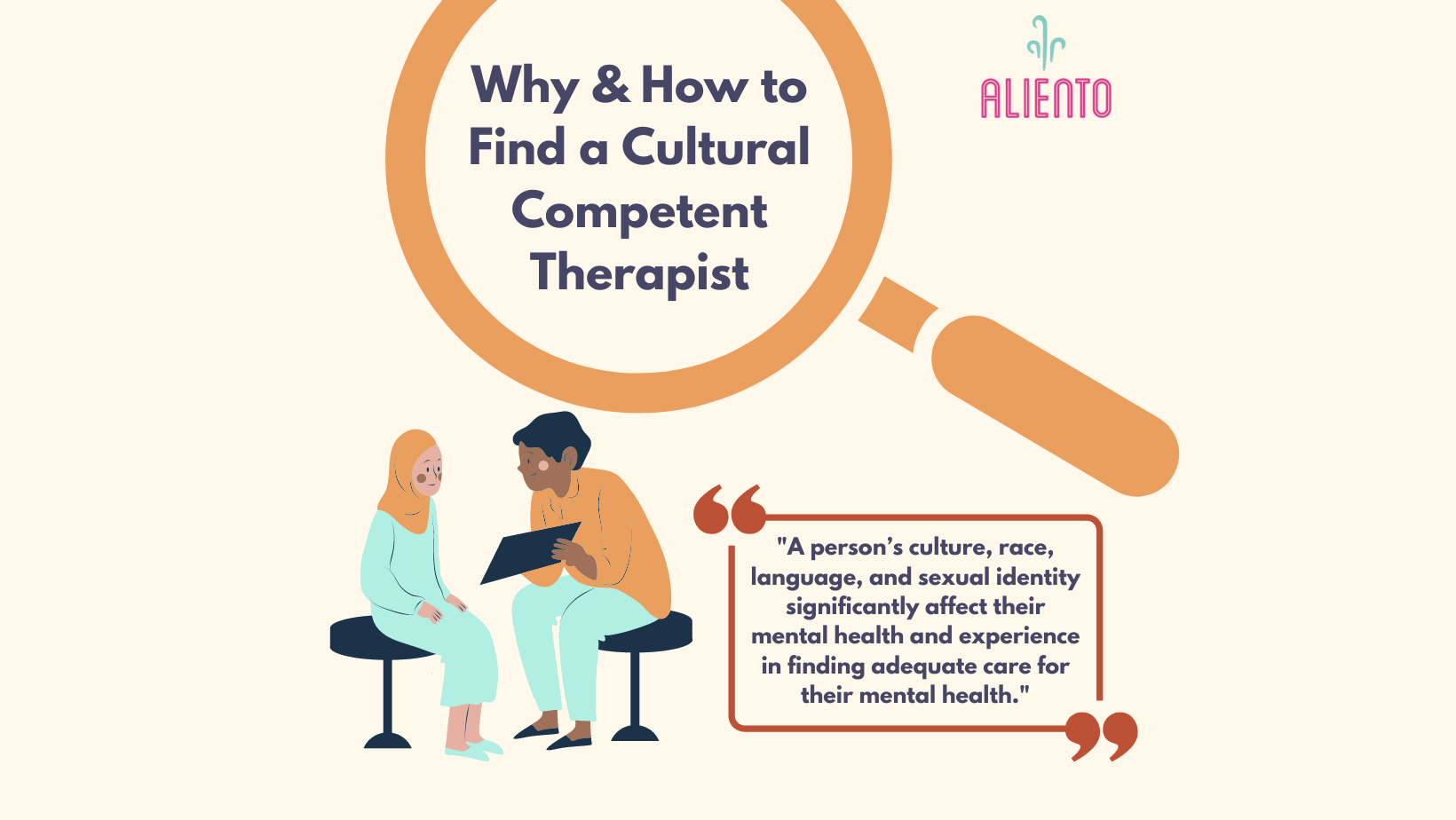FINDING A CULTURALLY COMPETENT THERAPIST
A person’s culture, race, language, and sexual identity significantly affect their mental health and experience in finding adequate care for their mental health.
A culturally competent therapist will strive to understand complex issues such as oppression and microaggressions and understand when their clients are their most authentic selves — for example when they use particular dialects or words that may not be considered Standard English. A 2010 study showed that healthcare professionals misunderstood the Spanish word “nervios.” They believed it was a term to describe physical tiredness, but what the patient might have been describing were symptoms of depression.
According to research from 2013 by PuMed, “racial matching,” or the shared race of a client and a mental health professional, can be used as an element of cultural competence in therapy and may lessen the chance of a person dropping out of therapy. Sharing the same cultural background as your therapist can help you feel more comfortable in sharing about microaggressions or other culturally specific issues that affect your mental health.
Here are some recommendations that can help you find a culturally competent therapist:
Ask your friends, family, and coworkers for recommendations.
Ask healthcare professionals for referrals or recommendations that fit the cultural background you want in a therapist.
Look online or ask cultural organizations in your community for referrals.
Look around at your therapist's office. Who works there? What does the waiting room look like? Are there pamphlets and signs that are for your community?
Here are some questions you can ask your therapist to find out if they are the right fit for you:
Have you received cultural competency training?
Do you have experience working with someone from my cultural background?
Are you or your staff bilingual?
Are you familiar with my culture’s beliefs and values?
Remember to be proactive when meeting with your therapist. Provide your therapist with relevant information about your culture and background. Tell your therapist what role you want your family to play in your treatment. Be aware of how your treatment is going and if your therapist is the right fit for you.
Resources:

